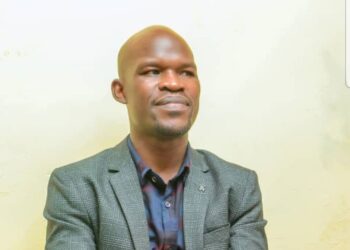The decision to bring vaccines back from districts where they were not being used, and concentrate the vaccination program in Kampala, appears to have been the right choice, since Kampala residents are now turning up for vaccinations in large numbers. The fact that many Ugandans are finally waking up to the fact that Covid is real is helping to drive them to get vaccinated. The most recent numbers of Covid cases is frightening, rising from a few cases a few weeks ago, to 200 then 500 and now over 1,000 per day so there is no telling where this will end. Certainly the fact that we are recording such numbers of cases means that Covid is now rampant in Kampala, because the recorded number of positive tests is probably far less that the actual number of those infected.
Government and private hospital facilities are now being overwhelmed, and the Nambole Stadium has been reactivated to receive Covid patients. The cases being admitted to hospitals are not mild or asymptomatic, but have moderate to severe symptoms, and most of the patients are in their thirties and forties. The figures that the MOH has released for those who have died are still low, which is encouraging, but again one is not sure of the degree of under-reporting. However, one doctor I spoke to from a private hospital said that the type of cases which are now being admitted are less severe than during the first wave, and that the majority of patients are recovering. At least this is good news, but sadly we are also seeing young people die.
Health workers themselves are now taking the situation more seriously and turning up for vaccination, so better late than never. It is worth noting that health workers in all countries get vaccinated against Hepatitis B, both to protect themselves, and to keep them from passing it on to patients. In Britain the authorities have also told health workers not to come to work unless they have been vaccinated against Covid. It seems reasonable to insist that health workers get certain vaccinations for their own safety and for that of their patients. The President has also asked teachers to get vaccinated, which has resulted in an increased number of teachers coming for vaccination. In the light of the short time until this batch of vaccines expire, the MOH is allowing all those over 18 to receive the vaccine, and those who have had the first vaccine can get the second shot after eight weeks, not twelve. Those who have had one vaccine are only partially protected and should still wear a mask and practise social distancing because a significant number of those who are partially vaccinated have been infected, though usually they do not become seriously ill.
The events of this week, with the attempted assassination of General Katumba Wamala ending in the tragic loss of his daughter and driver, have obviously kept the government preoccupied, but we are all expecting more measures to be announced to control Covid, especially in Kampala and Wakiso. Another lock-down will be devastating for businesses such as private schools, which have now been trying to survive for over a year and are just about to open again. Another closure could be the death knell for many schools. We should also realize that kids have been out of school for so long it has affected their behavior, with some kids having picked up bad habits and others having forgotten everything they had learned. One does not know what long-term damage these shutdowns will have on our children.
The only solution for this pandemic is mass vaccination to achieve herd immunity in all countries of the world, but judging by the vaccine hesitancy in Uganda, we were never about to achieve this. The silver lining to this cloud of the second surge is that more Ugandans are now wishing to get vaccinated. However, the downside is that when we finish this batch of under one million vaccines, we do not know when, or from where, we will get the next batch.
I received two phone calls this week from vaccine agents willing to supply Uganda, but both of them were pricing vaccines at $30 each. When one considers that the cost of the AstraZenica vaccine we received was around $5 one wonders where we would get the money if vaccines cost six times the price. We can only hope that countries that bought excess vaccines, such as Britain and Canada, will make their surplus available to poor countries like us. If the tide of Ugandan public opinion is turning in favour of being vaccinated, the next problem may be procuring the vaccines themselves.
Do you have a story in your community or an opinion to share with us: Email us at editorial@watchdoguganda.com













